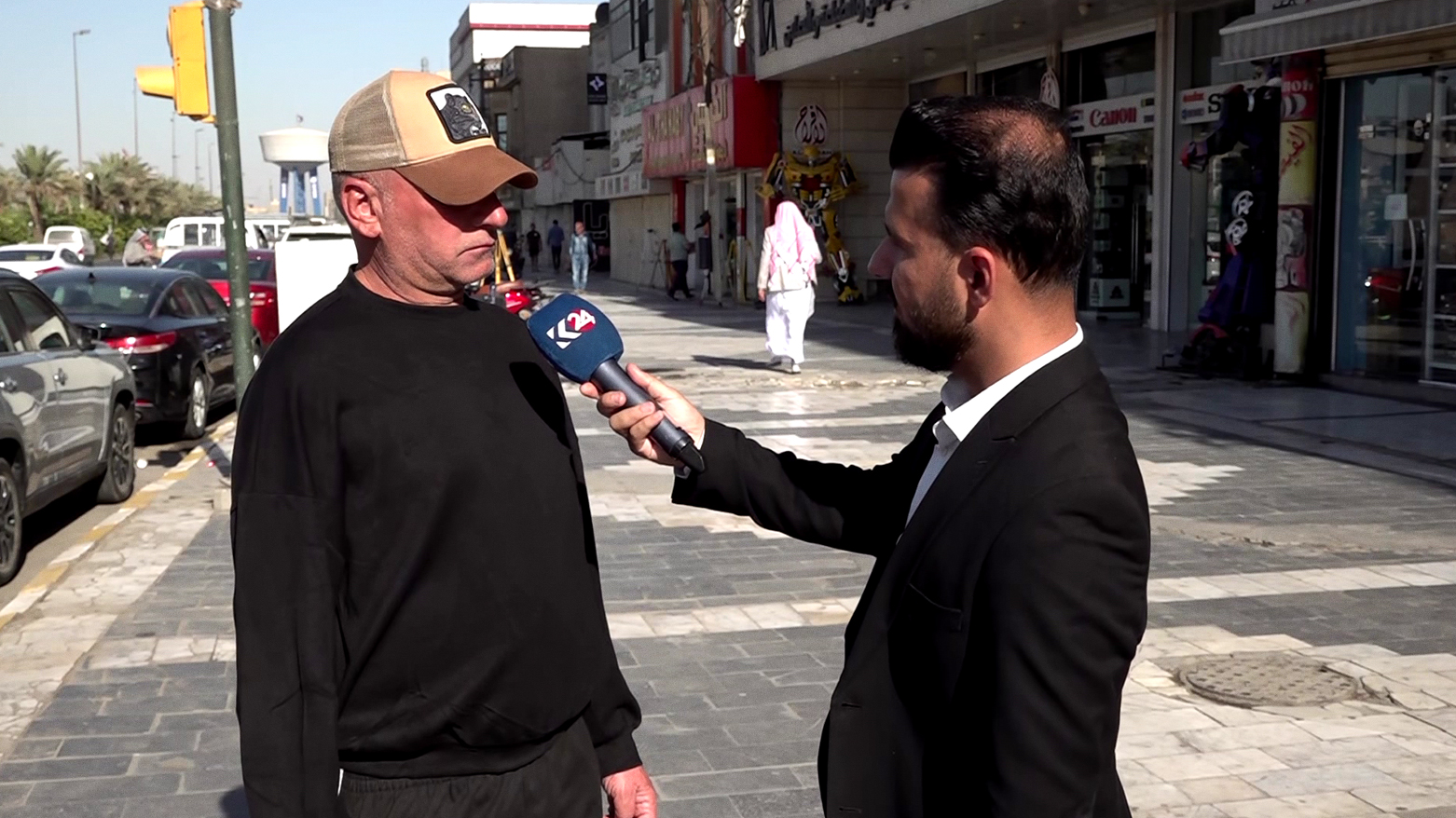'I’ll Vote for a Kurd’: A Baghdad Citizen’s Lament and a Hopeful Gaze Northward
A Baghdad citizen's viral interview reveals deep frustration with the federal Iraq's chaos, praising Kurdistan's order and freedom, and vowing to "vote for a Kurd."

ERBIL (Kurdistan24) – In a candid and powerful man-on-the-street interview that has resonated deeply across social media, a simple exchange on a Baghdad street has captured the profound and growing frustration of ordinary Iraqi citizens with the state of their nation, and has cast a hopeful, almost envious, gaze toward the Kurdistan Region as a model of what their own lives could be.
When asked by a Kurdistan24 reporter if he would participate in the upcoming elections, the man, an Arab resident of the capital, delivered a response that was as unexpected as it was revealing: "I'll vote. For a Kurd."
His subsequent explanation painted a stark and poignant picture of two vastly different realities within the same country—one of chaos, worn-out citizens, and blocked streets, and another, just a few hours' drive to the north, of polite, open-minded people, orderly cities, and a precious sense of personal freedom and peace.
The brief but potent conversation, conducted by Kurdistan24 reporter Dilan Barzan, has cut through the noise of the formal election campaigns, offering a raw and unfiltered glimpse into the mindset of a populace weary of unfulfilled promises and a seemingly perpetual state of disorder.
The citizen's heartfelt desire for his own province to emulate the provinces of the Kurdistan Region is a powerful testament to the tangible achievements of the Kurdistan Regional Government (KRG) in providing security, services, and a quality of life that now stands as an aspirational benchmark for many of their fellow Iraqis.
When the reporter, Dilan Barzan, expressed surprise at his choice—"So you're an Arab and you'll vote for a Kurd?"—the man's reply was immediate and firm: "Yes, of course!"
His reasoning was not based on abstract political ideology or sectarian alignment, but on direct, personal experience.
"I've been to Sulaimani, I've been to Erbil, and I've been to Zakho," he explained. "Decent people." This simple, human assessment set the tone for a powerful and revealing comparison between the two parts of the federal state.
Asked to describe the atmosphere in the Kurdistan Region compared to other parts of Iraq, he did not hesitate, choosing a single, evocative word: "Golden."
He then elaborated on what this meant to him. "Polite people. Open-minded people. Life there is something really nice," he said, painting a picture of a society where civility and order prevail. He highlighted the absence of the daily frustrations that define life in the capital: "No chaos. No blocked streets. No, for example, traffic jams."
Beyond the functional aspects of an orderly city, the man was clearly struck by a deeper sense of social and personal liberty that he had experienced in Kurdistan. He described a culture of tolerance and individual choice that stands in stark contrast to the more socially restrictive environments in parts of central and southern Iraq.
"He who drinks, drinks. He who wants to pray, prays. It's his choice," he observed, articulating a vision of a society where personal freedoms are respected and people are allowed to live their lives without interference.
The reporter then asked him to confirm if he saw a significant comparison between the Kurdistan Region and the other Iraqi provinces. His response was emphatic and laced with a palpable sense of weariness with his own surroundings.
"From the... a world of difference," he declared. He contrasted the spirit of the two populations: "[There, they are] polite people. People of tribes." And while he acknowledged a shared tribal heritage—"We are also people of tribes"—he was left with a wistful and almost mournful question: "But I wonder, will we ever become like them?"
This question, hanging in the air of the bustling Baghdad street, encapsulates the deep yearning for a different reality that is felt by many Iraqis. The reporter sought to clarify his ultimate aspiration: "So, as an Iraqi citizen, you wish the Iraqi provinces would become like the Kurdistan Region, like the provinces of the Kurdistan Region?"
The man's "Yes, yes" was a swift and certain confirmation. He explained the pull of the north in simple, human terms. "Why do we go there? It's for our own peace and quiet. There, no one bothers you," he said. The final, stark contrast he drew served as a powerful indictment of the state of his own city: "Here, it's utter chaos."
This single, heartfelt testimony from an ordinary citizen in Baghdad speaks volumes, offering a more potent endorsement of the Kurdistan Region's governance model than any official statement or political speech.
It highlights the fact that while politicians in Baghdad and Erbil may debate budgets, oil rights, and constitutional articles, for many people on the ground, the measure of a government's success is far simpler: Does it provide a safe, orderly, and tolerant environment where people can live their lives in peace?
For this citizen, and likely for many others who travel to the Kurdistan Region for tourism or respite, the answer is clear. The Kurdistan Region, with its functioning infrastructure, its culture of coexistence, and its respect for personal freedoms, has built something that its neighbors now look upon with admiration and a deep sense of longing.
His decision to cast his vote for a Kurdish candidate is not a rejection of his own Arab identity, but an embrace of a different model of governance, a vote for a future that he has seen with his own eyes and desperately wishes for his own children in the heart of the Iraqi capital.